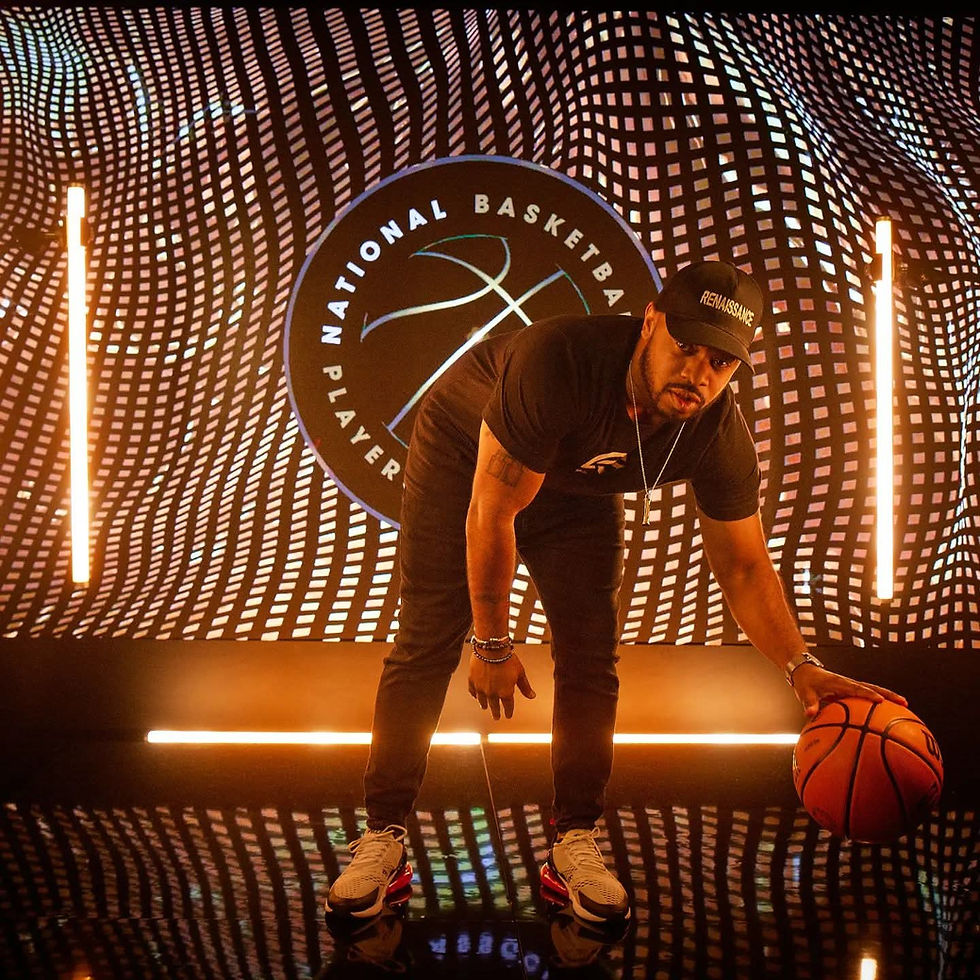Rachel Christine: Public Relations | NBA & WNBA
- The Ballers Magazine

- Jul 23, 2020
- 5 min read

Ever since she was five years old, Rachel Christine knew she wanted to work specifically in sports. From her dad and brother playing basketball in college to her uncles playing at Proviso West—one of the basketball powerhouses in the Chicagoland area—, Rachel has been surrounded by the world of sports from a very young age. Initially, Rachel was interested in pursuing a career in sports journalism after growing up watching Real Sports with Bryant Gumbel since the age of seven. Fast-forward to her time in college, Rachel pursued a degree in Sports Broadcast Journalism at the University of Missouri. During this time, she discovered her passion for the human interest stories behind the actual players and brands in the industry. After interning in the Strategic Communications Department, Rachel solidified her interest in the business side of sports and transferred to the communications discipline. After graduating from college, she began her journey in the industry doing public relations for NBC Sports within their action sports property, and then transitioned to the nonprofit space with United Way in St. Louis—where she achieved a series of accolades that would lead her to rediscover her passion for writing and storytelling. Before she knew it, she was contacted with an opportunity to work in the NBA. She was closer and closer to her dream job—one that would combine her passions for writing and the human interest stories. Upon starting in the organization as a Fan Relations Writer—where she would be responsible for answering fan mail, Rachel continued to embrace every opportunity to grow and highlight her skills in the space. After a year in this role, she received the opportunity to transition into her current PR role—one that focuses on Diversity & Inclusion, Marketing, and Social Responsibility.

Could you share more with us about your role in the Diversity & Inclusion space? What does your world look like and what are some things that people can expect if they are interested in pursuing a similar role?
Some of the things that I am involved in is a lot of executive media training—that is pretty much across the board with all of the PR that we do. Part of the practice in public relations is making sure that the people that we work with are empowered and are knowledgeable. Also, it is having to read a lot of news. I consume so many different pieces of news throughout the day because you truly have to be knowledgeable about the things that you are writing about, and the things that your brand or your company is getting involved in. A lot of times, internal business partners will ask for advice or our thoughts on different initiatives. You just have to be able to know a little bit about everything because you are essentially the first and last line of defense for the company. In terms of getting more specific into marketing, it is really about following industry trends. You have to really know what other brands that are within your competitive space are doing—having that sense of awareness and emotional IQ through it all is key.
Transitioning into your brand, what was the biggest challenge that you personally faced when you entered the sports industry? How did you overcome it?
I think the biggest challenge was not being afraid to speak up, but knowing how to listen. I think for my brand at least, the essential moment when I figured out that was a key to me really not just occupying the space, but taking it up in a meaningful way when I am at the table with other people who might be higher ranking than me, was when my superior at State Farm gave me a powerful piece of advice. She said, “I want you to know that you are extremely intelligent and I know that you have valuable things to say. But, you need to learn how to listen. You need to listen, listen, and listen—and when you think about speaking, listen again.” I can honestly say that that piece of advice was so key. Some people might think that when there is an uncomfortable silence, you have to fill it with words. You don’t. It then gets to a point where people know that when you speak, you actually have something of value to say—you aren’t saying it just to say it. I think learning that for my brand at a very, very early stage in my career has been crucial. Transitioning into working in the NBA, I realized I loved the game of basketball but I had a lot to learn when it came to the actual execution of the sport. I found myself having to just listen, listen, and listen—and then before I thought about speaking, listening some more. For me, it was really important to feel like I was not just speaking to be heard, but speaking to add value to the conversation.

You mentioned the impact building your tribe in the industry has had on your journey. Could you share more with us about your experience building up your network in the industry? What are some tips that you would give someone who is looking to build their network?
Want to read more?
Subscribe to theballersmagazine.com to keep reading this exclusive post.



